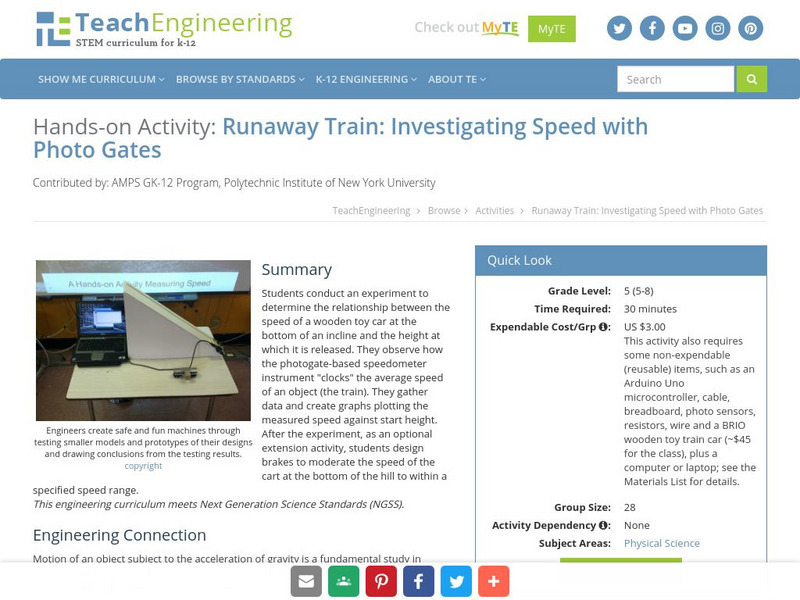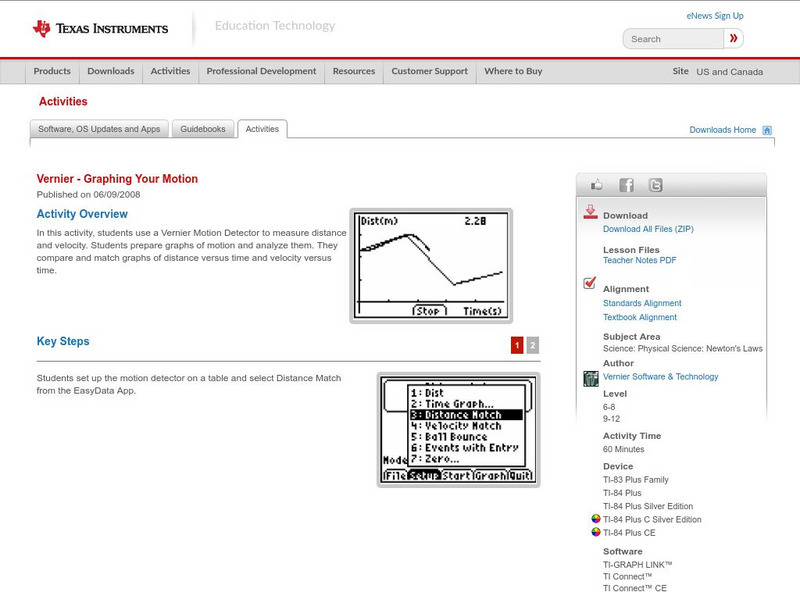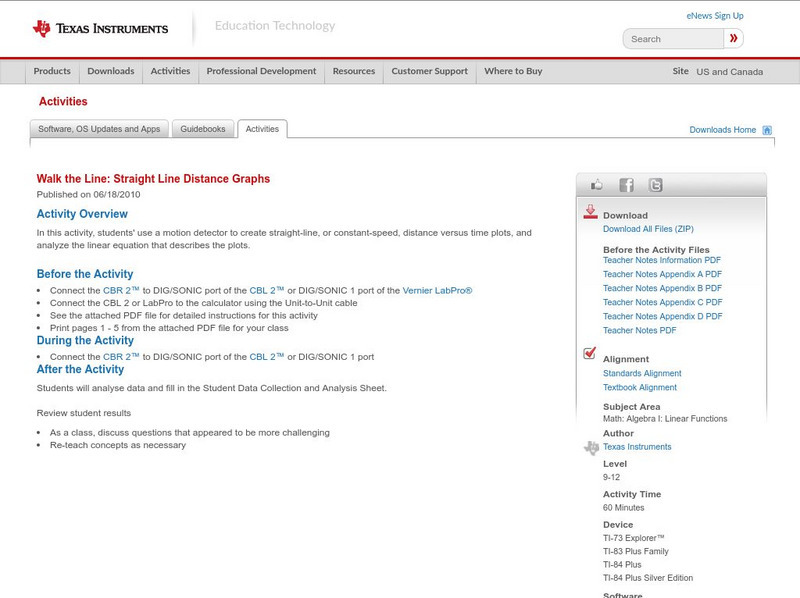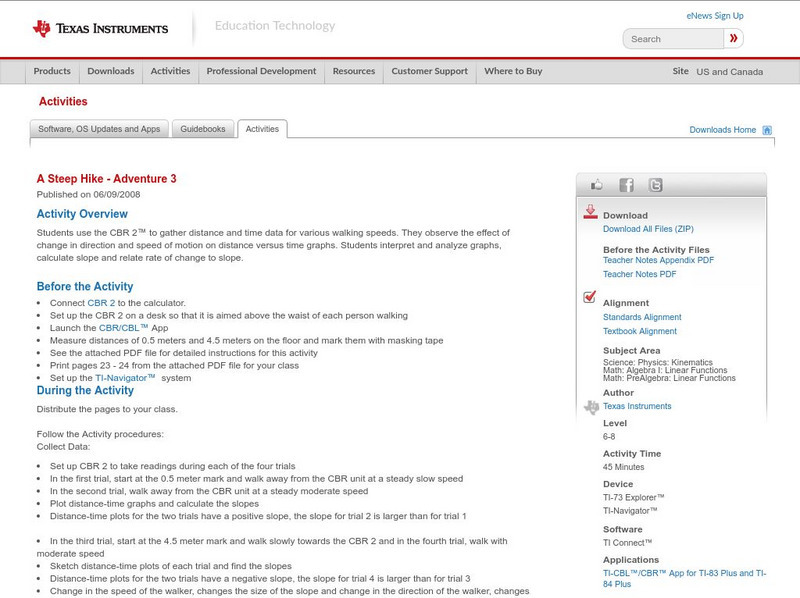MENSA Education & Research Foundation
Roller Coaster Mania!
Raise the energy level of your physical science class with this exciting hands-on activity. Applying their knowledge of kinetic and potential energy and Newton's laws of motion, young engineers use foam tubing and marbles to create...
National Council of Teachers of Mathematics
Varying Motion
For this secondary mathematics learning exercise, high schoolers collect data based on a person’s motion. From this data, students create graphs comparing displacement, velocity, and acceleration to time. The five-page learning exercise...
Curated OER
As the Wheel Turns
This is not your typical Ferris wheel problem. In this exercise, your class will combine their knowledge of sinusoidal functions as well as linear motion to come up with parametric equations that model the position of a point on the edge...
TeachEngineering
Teach Engineering: Runaway Train: Investigating Speed With Photo Gates
Students conduct an experiment to determine the relationship between the speed of a wooden toy car at the bottom of an incline and the height at which it is released. They observe how the photogate-based speedometer instrument "clocks"...
Texas Instruments
Texas Instruments: Graphing Motion: Instantaneous and Average Speed
Students are introduced to the calculator as a graphing tool and distinguish between average speed and instantaneous speed.
Texas Instruments
Texas Instruments: Graphing Your Motion
In this activity, students use a Motion Detector to measure distance and velocity. Students prepare graphs of motion and analyze them. They compare and match graphs of distance versus time and velocity versus time.
Other
Calculus Preview
The resource gives students a preview of topics learned in Calculus. Concepts included are graphs, speed, and integration. Graphs, tables, and an interactive applet are used to investigate the examples.
Texas Instruments
Texas Instruments: Falling Down Adventure 5
Students use the CBR 2 to study how a change in mass affects the average speed of a falling object. They graph distance as a function of time, and interpret and analyze graphs representing motion.
Physics Aviary
Physics Aviary: Graphing Motion Problem Level 4
Find out the instantaneous velocity based on a position vs. time graph.
Physics Aviary
Physics Aviary: Graphing Motion Problem Level 1
Students are finding the velocities of objects based on the position vs. time graphs they create.
Physics Aviary
Physics Aviary: Graphing Motion Problem Level 3
Find the displacement of an object just by looking at the velocity vs. time graph. This graph will have at least one negative region and one positive region.
Physics Aviary
Physics Aviary: Graphing Motion Problem Level 1 Part 2
Students are finding the relative velocity between two objects using a position vs. time graph.
Science Education Resource Center at Carleton College
Serc: Analyzing the Motion of a Marble Down a Ramp
This lab activity involves rolling a marble down a ramp where the students can investigate constant acceleration motion. The students then make a position vs. time graph and a velocity vs. time graph in order to investigate the change in...
Texas Instruments
Texas Instruments: Walk the Line: Straight Line Distance Graphs
In this activity, students' use a motion detector to create straight-line, or constant-speed, distance versus time plots, and analyze the linear equation that describes the plots.
Texas Instruments
Texas Instruments: A Steep Hike Adventure 3
Students use the CBR 2 to gather distance and time data for various walking speeds. They observe the effect of change in direction and speed of motion on distance versus time graphs. Students interpret and analyze graphs, calculate slope...
Texas Instruments
Texas Instruments: Match Me!
In this activity, students move in a specific way in front of the motion detector to create motion plots that match a given Distance versus Time plot. They make connections between types of movements and characteristics of Distance-Time...












